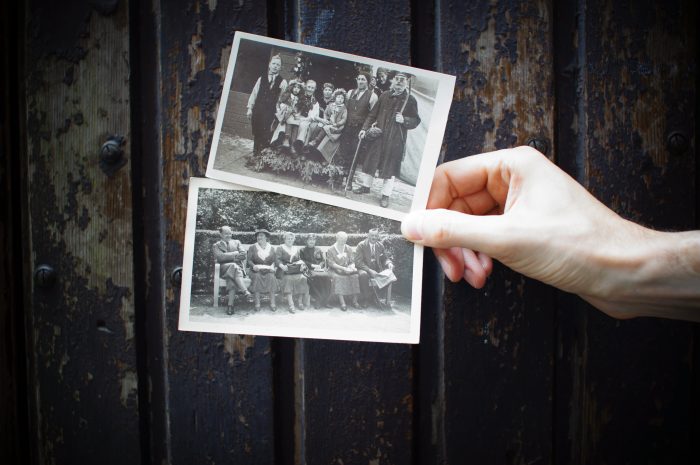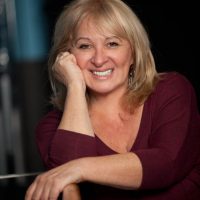If there was a possibility that a simple test could profoundly impact everything you thought you knew about yourself, would you take it?
Millions have.
It’s almost impossible to turn on radio or TV or land on any social media page, particularly during Mother’s and Father’s Day, and not be exposed to the pervasive ads selling direct-to-consumer genealogical DNA testing. Accompanied by saccharine music are the commercials where a child and their parent proudly look at pictures of an ancestor they found because of testing. Who would have foreseen even a few years ago that for under $100, one could determine their ancestral ethnicity and genealogical connections?
And who could resist? According to various studies, not the almost 30 million people worldwide who have had their DNA analyzed. In many cases, these tests are taken for fun and/or to enhance or create a family tree.
But these tests come with disclaimers or additional information, such as this one from 23andMe: Looking at your genetic data might uncover information that some people find surprising. Some information can be relatively benign and even amusing. At other times, the information you learn can have profound implications for both you and your family.
At first glance, the words “surprising,” “benign,” and “amusing” stand out enough to almost make you ignore the sentence warning you about the consequences. As any crime scene enthusiast knows, DNA has either exonerated or incriminated someone who may not even have tested but is found through a fifth cousin twice removed who did. Isn’t that what they’re referring to? After all, you know where you’re from and who your family is, and if suddenly you get information on a cousin you didn’t know about, wouldn’t that be amusing?
The reality is that many test-takers have uncovered results that have blindsided and yielded surprising and life-altering data. Certainly, a different heritage than what you’ve been told would be surprising. But what if, instead, it was revealed that someone you thought you were related to was not your biological relative.
The exact number of how many have been affected by this type of result can’t be quantified because, in many cases, the stigma and trauma associated with the findings of these decade-old secrets continue to be kept in the closet. These disassociated and surprised people also learn that they don’t necessarily know how to process and proceed with this information. When friends and even therapists haven’t always understood the significance of the discoveries, several social media groups have formed to step in to help navigate.
These groups have become a movement of sorts, binding with shared and similar stories, the thousands of members who have joined. It is a place where surprise, disbelief, anger, and sadness are understood and acknowledged. It is a place where people feel free to talk about things they can’t discuss in their everyday lives.
For those who have been dealt a blow, it’s more than just finding out their beloved father, grandparents, aunts, uncles, and cousins are no relation to them. It’s having to confront mothers who never foresaw mail-in DNA kits and who hoped to take their secret to their grave. It’s mourning the loss of a full-blooded brother or sister, and it’s finding out that the heritage once proudly touted is no longer theirs to flaunt. Participants in the group talk about finding family members who either welcomed them with open arms or wanted nothing to do with them. The stories are painfully raw and vary from rape and incest to marital affairs and artificial inseminations and everything in between. It’s not a club that anyone ever wanted to join, but now find is their lifeline.
It is a club I belong to.
My discovery didn’t happen because of a DNA test. Instead, a misspoken comment by an aunt at my mother’s funeral made me realize my very much-loved dad was not my biological father. He didn’t even meet my mom until I was two years old. When I got the courage to coerce my dad into taking a paternity test, the result conclusively proved that he wasn’t mine (yet to this day, he still refuses to talk about it, and I’m afraid I’ll never find out what he knows).
What followed were years of keeping the discovery a secret from everyone around me, partly from embarrassment for having been deceived, partly from not wanting to hurt my dad. It was also years of self-doubt, feelings of betrayal, and deep depression. There were times when I searched for any clues that would lead me to find my biological father (made almost impossible as I was born and raised in another country and my birth information had been altered).
Ten years after I found out, I had given up hope that I would ever know my true identity. With nothing to lose, I decided to take an over-the-counter DNA test. I figured I probably wasn’t the Italian girl who was brought up Catholic, but the results shocked even me. It turns out I am actually a 51 percent Romanian Ashkenazi Jew. Within a year, I hired a genealogist, and three days after that, they found a first cousin once removed who had a first cousin who had lived in Brazil—my father. He was a published author, a Holocaust survivor who had written books about his experience at the camps. He was also deceased. His biography claims that he had no children, and as with my dad, I will never know what he knew.
There are so many stories like mine. DNA tests and the media have forced us to look at the skeletons in our family’s closet. Having a place to go where people understand makes everyone’s journey into this unknown and unanchored territory less painful and less lonely. It is something each of the almost 9,000 members of one site alone can relate and understand; that feeling that our lives were turned upside down.
We, after all, really get it. We know the feeling of having your heart leap every time you are notified that you have a new DNA match and then have it break when you can’t figure out the connection. We’re used to looking at strangers in photos trying to find similarities between their faces and ours. We remember conversations we wish we had paid closer attention to. We shake our heads in agreement when we talk about that feeling we had growing up about something not being right.
Every couple of days, some new shocked and displaced person will ask: “Do you wish you hadn’t found out?” The answers are varied and dependent on how long the person has known. For me, the answer now is “no,” but it wasn’t always that. But time mellows things. After all, once given the truth, who would want to continue to live a lie? Besides, I owe my children a complete and accurate family tree. I owe it to the man who wrote about his experience in the Holocaust to keep his books alive so the world doesn’t forget.
Yes, my life has profoundly been affected. Yet, I still cherish my dad, and I feel no less love for my brothers and sisters.
And yet…the betrayal hurts, and I’m angry. I wish I had been trusted with the truth.
And yet…I look at pictures of this stranger—my father—and see the dimples that he passed on to me and that I now pass on to my grandchild.
Last Christmas, my husband gifted me a Star of David necklace. I wear it as a reminder of the heritage I recently discovered and to honor men and women who, like my father, survived. I don’t know what my relationship with this man would have been, but I wish I had known him.









Read 11 comments and reply